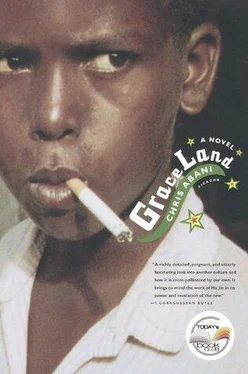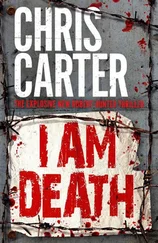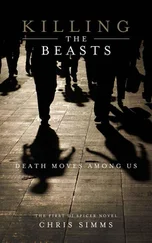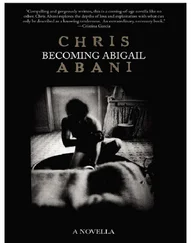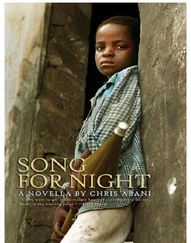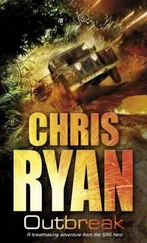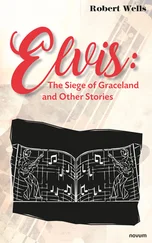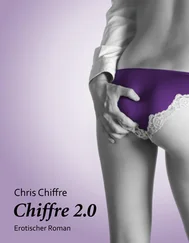“Are you sure?”
“Yes.”
Elvis ate in silence as Okon studied him. The buka’s radio sounded like someone had drowned its speaker in muddy water; still, Elvis could clearly hear the Wings singing, “Please catch dat love dat is falling on you … Don’t let it drop, it is not made of wood …” Elvis sang along in his head, wondering if it would be rude to ask Okon how he got the money he was spending.
“So why are you home so early?” Okon asked.
“I was fired.”
“Oh. I’m sorry to hear dat. Why? You are a good person.”
“You hardly know me,” Elvis protested.
“I know you better dan you think.”
He went back to drinking his stout, which, Elvis noted, seemed milky and thick, unlike any stout he had seen before. Noticing his confused look, Okon explained:
“It is concoction.”
“Sorry?”
“Concoction; condensed milk and stout. Very good for your blood.”
Elvis nodded. It sounded disgusting, he thought.
“I know you dey wonder how I manage get all dis money,” Okon said.
Elvis shrugged, embarrassed.
“Dat’s okay. I don’t want you to think I am a tief, dat’s why I tell you.”
“That’s quite okay, really,” Elvis replied. “You don’t have to explain anything to me. I don’t think poorly of you.”
“You are really a good man, but I’ll tell you anyway.”
Elvis was a little worried; he didn’t want to be an accessory to any crime.
“Blood.” Okon said simply.
Elvis was by now visibly agitated. Blood. Did that mean Okon was an assassin for hire? Lots of business rivals had turned to that as an effective system of beating competition. Could it be blood money? Elvis suddenly felt nauseous. Okon noted his expression with alarm and explained.
“Blood. De hospital, dey pay us to donate blood. One hundred naira per pint. If you eat well, you can give four pints in four different hospitals, all in one day. It’s illegal, of course, but it’s my blood, and it’s helping to save lives, including mine. Right?”
Elvis smiled in relief. Okon smiled too.
“You can come too, now dat you don’t have job,” he urged.
“No, I don’t think that’s for me.”
“But if you change your mind, let me know and I’ll connect you.”
Elvis finished the rest of his meal in silence and, getting up to leave, thanked Okon. As he began to walk home, he heard Okon call out: “Don’t forget. Okon, dat’s me.”
Back in his room, Elvis sat in the rust-crisp metal chair facing his desk. Flakes of rust, like red dandruff, fell to the floor. With a sigh he unlocked the metal box he had just placed on the desk. It used to be his school box, holding his books all through primary school. He ran his fingers along the top and down to the handle, remembering the groove it had cut in his hand. It was still there, a hard calloused line.
Opening the box, he adjusted the mirror he had taped to the inside cover. Then, methodically, with the air of ritual, he laid out the contents: a small plastic compact of hard, pressed face powder, a few tubes of lipstick in different colors, a plastic case with eye shadow in several shades of blue, a small bottle of mascara with a brush hardening in it, an eye pencil and a tin of Saturday Night talc. He held up the tin of talc, admiring the image printed on it — a white couple in evening dress dancing under a sky full of stars. That was the life, he thought. Also laid out next to the box and its contents were a wig and a pair of sunglasses with wide frames studded with rhinestones.
The old battery-powered record player scratched through “Heartbreak Hotel,” a stack of coins keeping the stylus from jumping through the worn grooves. Elvis nodded along, singing under his breath as he mixed the pressed powder with the talc. The lumpy powder crumbled in cakes of beige, reminding him of the henna cakes Oye ground to make the dye she used to paint designs all over her body. Satisfied with the mix, he began to apply it to his face with soft, almost sensual strokes of the sponge. As he concentrated on getting an even tone, his earlier worries slipped away. Finishing, he ran his fingertips along his cheek. Smooth, like the silk of Aunt Felicia’s stockings.
With the tip of his index finger, he applied a hint of blue to his eyes, barely noticeable, but enough to lift them off the white of his face. Admiring himself from many angles, he thought it was a shame he couldn’t wear makeup in public. That’s not true, he mentally corrected himself. He could, like the transvestites that haunted the car parks of hotels favored by rich locals and visiting whites. But like them, he would be a target of some insult, or worse, physical beatings, many of which were meted out by the police, who then took turns with their victims in the back of their vans. It was exasperating that he couldn’t appear in public looking as much like the real Elvis Presley as possible.
Drawing quickly and expertly with the black eye pencil, he outlined his eyes, the tip of the pencil dancing dangerously close to his cornea. Pulling the mascara brush free, he knocked the dried goop off before dragging it through his already dense lashes. Again he examined his hard work intently before selecting a deep red lipstick. Not satisfied with its shine, he rubbed some petroleum jelly over his lips and then smacked them. Much better, he thought.
He got up to change the record, which was dragging its stylus reluctantly and noisily across the label. He put it into its sleeve carefully and checked the sharpness of the needle by running a fingertip across it. This also cleaned the dust on the needle’s point. Selecting “Jailhouse Rock,” he blew imaginary dust off the record. He was careful as he put it on, knowing from experience that the thick, heavy vinyl would shatter like a china plate if he dropped it.
He walked back to the table and pulled the wig on, bending to look in the mirror. Elvis has entered the building, he thought, as he admired himself. This was the closest he had come so far to looking like the real Elvis, and he wished he had a camera.
Pushing back from the table, he began to dance around the room. By the time the record had come to an end, he was perspiring heavily. Not wanting the makeup to run, he sat on the bed and put on the table fan he had bought from Redemption, a recent acquisition made possible by his job at the construction site. He let his fingers linger over the buttons as the truth of this day returned to him. From the bed, he could see himself in the mirror on the desk, and he stared hard. What if he had been born white, or even just American? Would his life be any different? Stupid, he thought. If Redemption knew about this, he would say Elvis was suffering from colonial mentality. He smiled. It spread across his face in fine tendrils that grew wider as he laughed until his skin showed through. I look like a hairless panda, he thought. Without understanding why, he began to cry through the cracked face powder.
Elvis stepped out of his room onto the front veranda and looked around, rubbing his sleep-crusted eyes with a couple of knuckles. He wiped his hand down his face and realized he had slept with the makeup on. After that heavy lunch with Okon, he had napped for a couple of hours.
Across the street, in the weak shade cast by the odd tree or veranda canopy, a few women lounged like melting toffee on the stoops. They sat with bored eyes, fanning themselves with magazines, newspapers or raffia fans. One or two chewed on sugarcane stems, mandibles crunching slowly, pausing only to spit sucked-out husks into the street, peppering the black asphalt in yellow-white blobs like tired snowflakes. A couple sat plaiting hair and chatting brightly as though to dispel the heavy air. A few very young children chased a football halfheartedly across the street, upturned empty paint tins serving as goalposts.
Читать дальше
